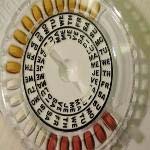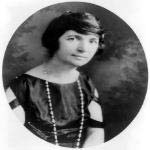
In May 1960, the U.S. Food and Drug Administration approved the world's first birth control pill. Today, 12 million American women take the Pill, making it the leading contraceptive in the United States.
In her 1975 hit single, country star Loretta Lynn sings a victory anthem for the Pill:
You wined me and dine me
When I was your girl
Promised if I'd be your wife
You'd show me the world
But all I've seen of this old world
Is a bed and a doctor bill
I'm tearin' down your brooder house
'Cause now I've got the pill.
When the Pill hit the market in 1960, 30 states had laws restricting the advertising and sale of contraceptives. Two states banned them outright. Those laws were rendered invalid for married women by a 1965 Supreme Court decision and the ruling was expanded in 1972 to cover all women.
University of Minnesota historian Elaine Tyler May says in the post-World War II baby boom era, the impetus for promoting an oral contraceptive for women came not from drug companies or the government, it came from the vision of two women: Margaret Sanger and Katharine McCormick.
"Sanger had the political savvy, experience and connections and Katharine McCormick had the money. So really the funding for the early contraceptive part of the research came from Katharine McCormick single-handedly," she says.

High hopes
Sanger and McCormick felt the female contraceptive could emancipate women.
May says the team they worked with to make that happen attached other far-reaching utopian dreams to the project. "The most idealistic hopes attached to the Pill were that it would solve the problem of overpopulation, and poverty; that domestically, it would create happy families because married couples could enjoy sex without fears of unwanted pregnancy; that single women wouldn't have babies anymore because they could prevent it until they were married."
It gradually became clear that the Pill was not a panacea for all those societal ills. It did not stem overpopulation, cut poverty, lower the divorce rate or put an end to unwanted pregnancies. Nor did the Pill spark the sexual revolution of the 1960s.
Instead, as May writes in her new book, "America and the Pill: A History of Promise, Peril and Liberation," women liberated themselves as the result of the feminist movement.
They used the Pill as an important tool to gain control over their lives. "Making demand on their doctors and medical profession, and they also use the pills to challenge pharmaceutical companies to make the pills safer, and they also challenge the mores of the Catholic Church where women in particular but men and women decided they would use contraception even if the church did not approve it."
May adds that today's Pill has little in common with the one on the market in 1960. "The pill 50 years ago was a very high dose pill, 10 milligrams of hormones," she says. "It is a fraction of that now. It's a much safer pill and a lot of the difficulties have been worked out in terms of safety and side effects, not all of them, but there are still problems with the Pill. It is not a perfect contraceptive."

Barriers remain
Women still face barriers to full reproductive rights.
While more contraceptive options and devices are available today, many women are denied access to them. Some states have so-called conscience clauses written into laws, allowing doctors and pharmacists to refuse to provide reproductive health products and services because of their personal beliefs.
"They can just say they won't do it," says May. "Abstinence-only sex education denies young women opportunity to have the knowledge they need to make their own informed decisions."
May observes that, 50 years after women gained a powerful tool to control their own bodies, they are still fighting to use that tool as they see fit. She suggests that could help explain why the United States has a higher teen pregnancy rate than any other country in the industrialized world. And this year, for the first time since 1991, that rate is on the rise.
panacea: something that will solve all the problems of a particular situation 萬靈藥;萬能之計
abstinence: the practice of not allowing yourself something, especially food, alcoholic drinks or sex, for moral, religious or health reasons (因道德、宗教或健康原因?qū)︼嬍场⒕啤⑸鹊模┕?jié)制;禁欲
Youths need more reproductive education: Poll
Abortion stats cause for concern
(來源:VOA 編輯:陳丹妮)
